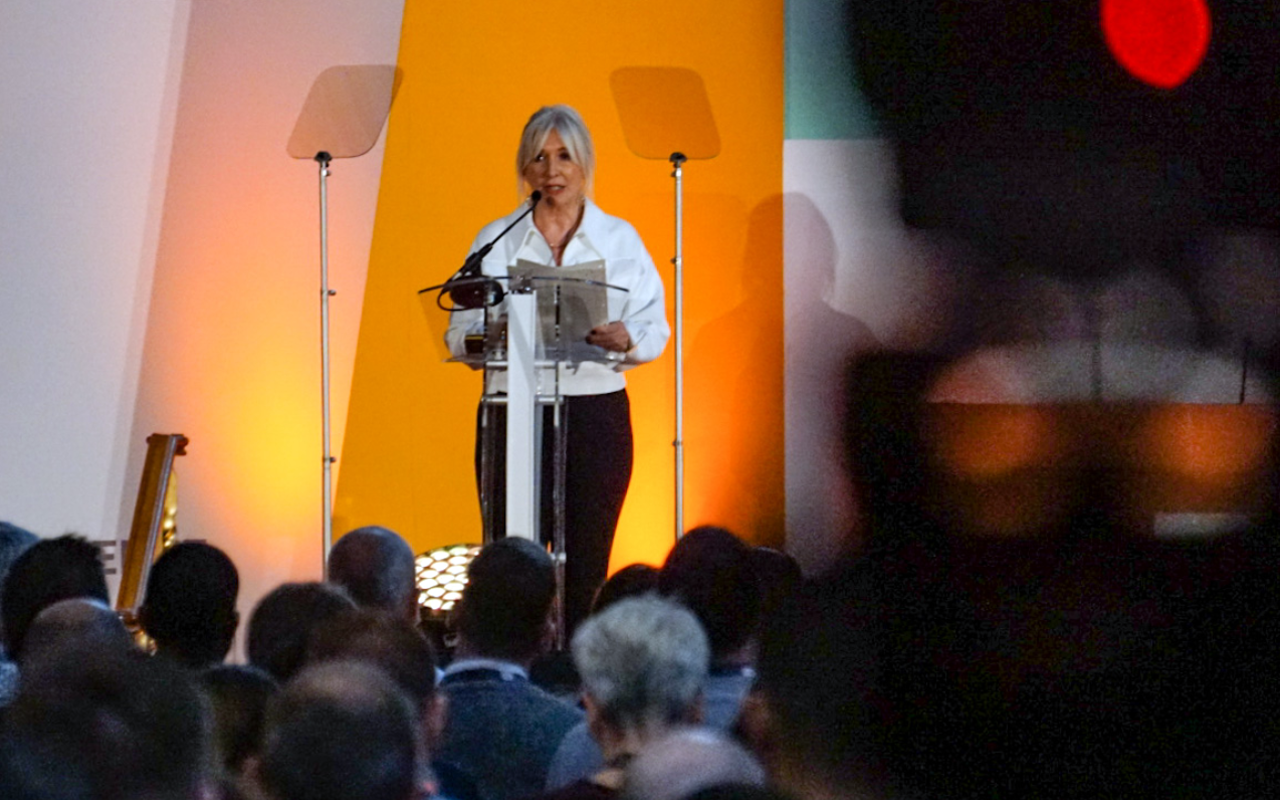
The Culture Secretary has said an alternative funding model could be in place from 2028
Photo: Jake Johnstone / DCMS
BBC licence fee freeze ‘cultural vandalism,’ says sector
The broadcaster downplays speculation about drastic changes amid concerns arts programming, creative work opportunities, and the philharmonic orchestras will suffer.
Plans to freeze the BBC licence fee for two years have been met with alarm in the sector.
Culture Secretary Nadine Dorries confirmed the suspension on Monday (17 December), advising the fee will then rise in line with inflation until the current charter comes up for renewal in December 2027.
Prior to her announcement, Dorries alluded to abolishing the licence fee in favour of alternative funding streams, tweeting that “this licence fee announcement will be the last” – a possibility heavily criticised by the creative industries.
READ MORE:
A petition by union BECTU to “protect the BBC” has received over 20,000 signatures since its launch on Monday (17 January).
The Writers Guild of Great Britain called Dorries’ plans an act of cultural vandalism. General Secretary Ellie Peers said it was “a woeful act of ideological self-harm and a last-ditch desperate act of distraction” from partygate.
“Every £1 of the BBC’s direct economic activity generates a total of £2.63 in the economy,” Peers added.
Incorporated Society for Museums Chief Executive Deborah Annetts voiced concern that deep cuts at the BBC would affect investment in music, a sentiment echoed by Labour MP Kate Green, who noted a potential loss of finance for the BBC-funded philharmonic orchestras.
The BBC expects freezing the licence fee, which raises £3.5 billion annually, will cost it £285m by the end of 2027.
“That is disappointing for the cultural industries who rely on the BBC for the important work they do across the UK,” an official statement reads.
Business as usual
The BBC will take stock before making decisions on programme cuts, according to Director General Tim Davie.
Dorries’ announcement generated speculation over what services could be, with reports daytime programming on BBC Two – the broadcaster’s designated channel for the arts – could be scrapped.
Speaking to ArtsProfessional, a BBC spokesperson downplayed speculation, saying no decisions have yet been made. A commitment to doubling investment in arts and music programming remains in place.
The broadcaster has suffered a 30% cut to its public funding in real terms since 2010.
Catherine Johnson, a Professor of Media, Journalism and Film at the University of Huddersfield, says the current freeze is likely to affect the production of arts programming.
“Evidence from other countries that have sought to alter the funding model for public service media suggests any attempts to scrap the licence fee are likely to undermine the legitimacy of public service broadcasting.”
Future models
An alternative funding model could be in place from 2028.
MPs disagreed over what the BBC’s future funding could look like at Monday’s Parliamentary debate.
Backbench Conservative MPs championed the move to a subscription service akin to Netflix, labelling the licence fee outdated after it lost 700,000 payees last year.
DCMS Chair Julian Knight, a supporter of the freeze, said the UK’s current levels of broadband coverage cast doubts on the future success of a subscription model, calling for clarity on how technology would be updated to meet demand.
Dorries deflected cross-party concerns the Government wants to privatise parts of the BBC, stating she is “just here to start the conversation”.
DCMS Shadow Secretary Lucy Powell led calls to retain the licence fee, saying the Conservatives know the price of the licence fee, but not the value.
“This is not how the future of the cornerstone of our world-leading creative industries should be determined. [Dorries] will have a fight on our hands if she wants to destroy it.”
Join the Discussion
You must be logged in to post a comment.